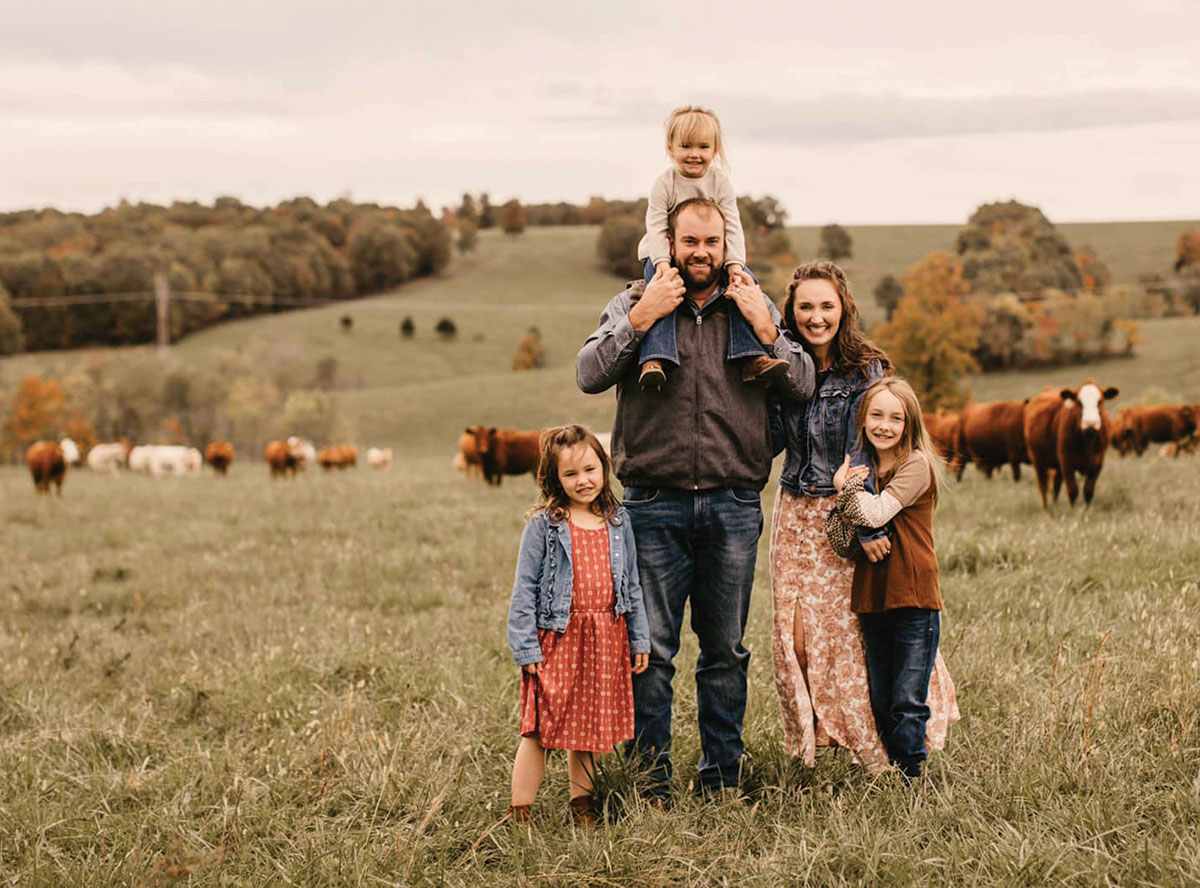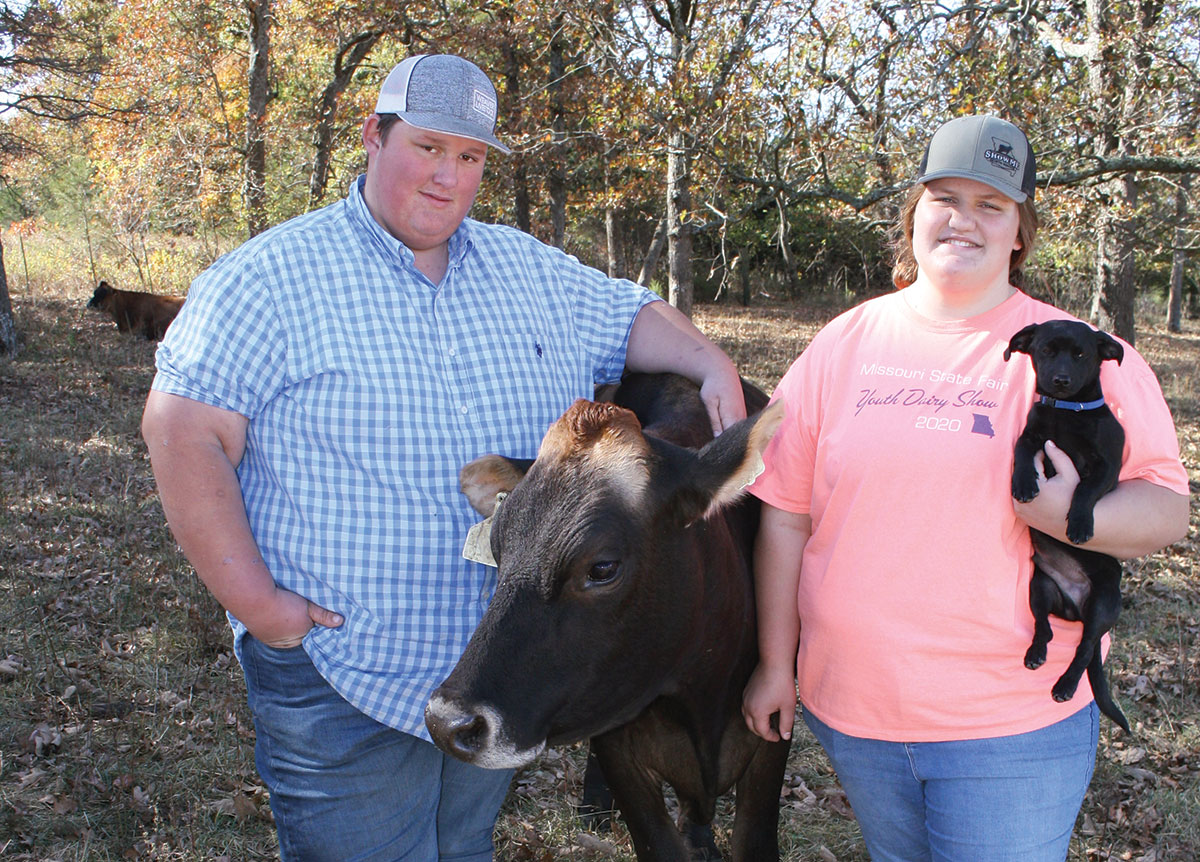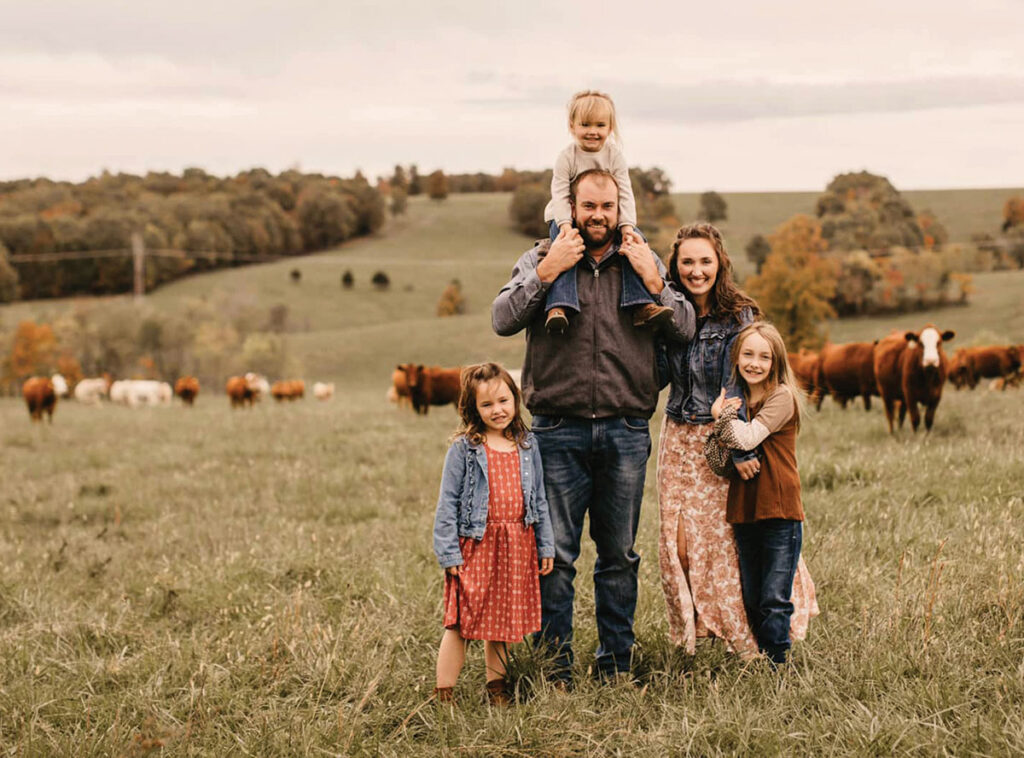
Ozark Valley Beef offers top-quality beef from their growing operation
EDGAR SPRINGS, MO. – Jeremiah Harris is the third generation to raise cattle on his paternal grandfather’s original homestead.
While Jeremiah and his wife Amy love working cattle on the same land as his forefathers did, the couple do things a little differently. They raise Wagyu, a Japanese breed of cattle for sale from farm-to-table and do so in a method that is more environmentally friendly than previous generations.
When the opportunity presented itself in 2007, Jeremiah and Amy bought his grandfather’s 600-acre farm. Next, they concentrated on buying roughly 700 acres of land that originally belonged to the Harris family but had been sold off through the years.
After securing the needed pasture land, Jeremiah began five years ago raising 104 Wagyu beef at Ozark Valley Beef Co., choosing that breed after much research. Its health benefits were attractive. Wagyu has the lowest saturated fat content and cholesterol content, as well as being higher in omega monounsaturated fatty acid of any beef in the world. Wagyu also digests better than other beef.
Amy said the taste is unique in that as the fat melts during cooking, it leaves the meat with a buttery flavor. Jeremiah compares the taste to that of a home-grown tomato which is much more flavorful than its store bought counterpart.
Last August, after working two jobs meant spending less and less time with his wife and three daughters, Jeremiah made the decision to give up construction work altogether. He decided to concentrate full time on the job he loves to do most, raising Wagyu beef.
He currently has built a herd of 400 Wagyu containing 250 to 300 momma cows. Jeremiah said he has been keeping heifers back, concentrating on genetics to a point where he will one day sell full blood Wagyu. That process isn’t quick; it takes about 51 months to complete the cycle.
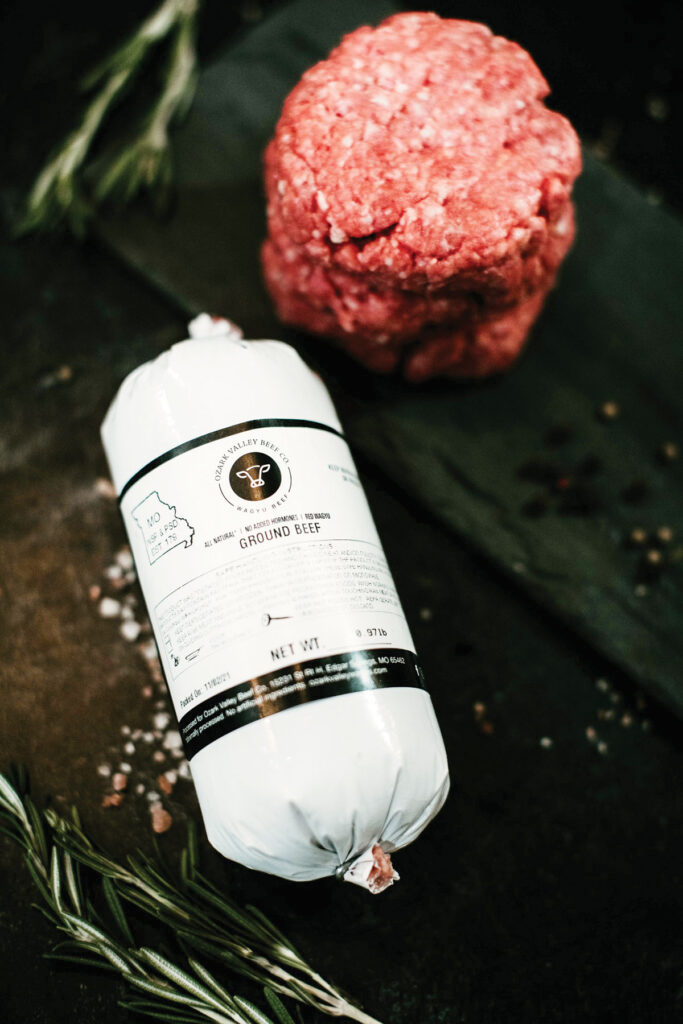
It takes roughly 22 months to raise a calf from birth to processing. That’s 10 to 12 months longer to feed Wagyu than other breeds. Wagyu grows at a rate of approximately 2 pounds a day. The 120 percent grain-finish process is accomplished without the meat containing growth hormones or steroids.
Currently under construction is a finishing barn. Jeremiah said it will serve as a place to finish out the last 300 pounds. He will also be able to utilize the waste dropped in the finishing barn as fertilizer, to spread it throughout the pasture and eliminate the need to purchase fertilizer. The cost to purchase fertilizer is about $140 per cow/calf pair per season, so Jeremiah likes to lower that cost whenever possible.
Harris family members own a hay farm so Jeremiah utilizes those services when needed. Generally, it’s around January before his herd will need hay.
In another effort to reduce purchasing fertilizer and hay, Jeremiah uses rotational grazing. Every single day the herd is moved from one pasture to another. Moving the cattle is easy because once the fence is opened to the next pasture, the cattle naturally follow the farm ATV or truck right on in so they can get the grass that may be greener on the other side. This method is easy enough that Amy or any one person can move the herd should the need arise.
Rotational grazing also provides the opportunity for a daily check on the herd. A cow lagging behind or acting odd could be ill. It’s a way to keep a close eye on sickness and doctor a cow at the onset.
Jeremiah gives credit to the Soil and Water District as well as the National Resource Conservation Service for helping him garner grant funding for watering and fencing. After finding the application process a smooth one, he encourages other farmers to set aside fears of seeking grant funding.
The ultimate goal is to use the best possible resources to raise cattle that are healthy and stress free. Zimmerman Meats plant in Salem, is where Jeremiah takes the meat for processing. The Wagyu is graded there on a USDA scale of Prime rated 1-12, with 1 the lowest and 12 the highest.
A marbling range of 6-8 on a Better Marbling Score (rated 1 to 9-plus) is the range Jeremiah’s Wagyu herd scores, It’s a number several local restaurants, including Carnivores, Sybill’s and O’Doggy’s, depend on to know they’re purchasing quality Wagyu beef from Ozark Valley Beef Co. to serve quite a few customers.
The herd supplies farm to table route sales of boxed Wagyu beef delivered every Wednesday down the Interstate 44 corridor. Towns include St. James to St. Robert. Customers order online for the Wednesday delivery or they can pick up the meat at Ozark Beef Farms in Edgar Springs.
On Saturdays, the Harris family sells meat at the Osage Beach Farmers Market. Many customers buy one steak there to try it out, then order online and have it delivered the following Saturday at the market.
Or meat can be ordered online and shipped directly to the customers’ doorstep. The Harris’ farm is USDA certified to ship boxed meat all over the continental United States.
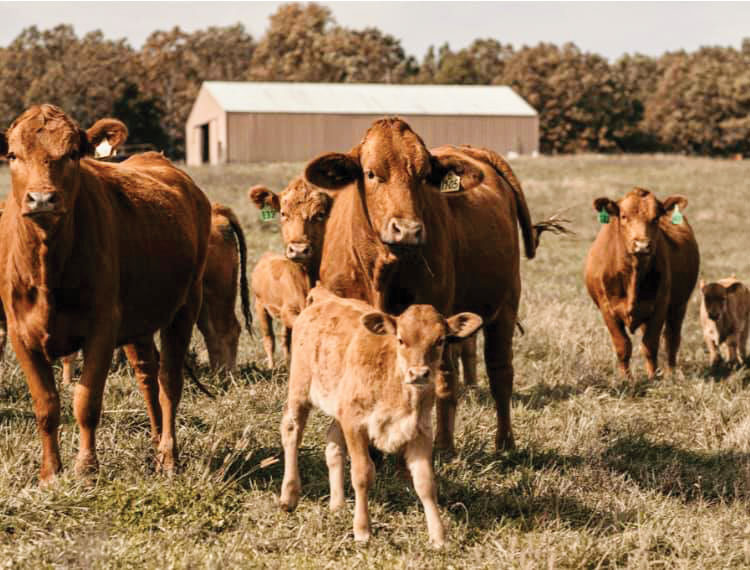
The only thing left to complete the commercial sales goal is for Jeremiah to find one more restaurant needing quality Wagyu for burgers delivered on a weekly basis.
Jeremiah would like to expand his herd by another 100 to 150 but an uncertain financial future nationwide keeps him hesitant to make any expansions in the foreseeable future. “Will people be able to buy beef?” Jeremiah pondered, adding, “It’s just too risky to expand right now.”
Not that there isn’t plenty to do without expansion.
Amy doubles as a nurse in labor and delivery at Phelps Health, plus plays a vital role in farm marketing. She takes care of the website, as well as posts on Facebook, Instagram and other social media.
Until herd expansion can be considered economically feasible, Jeremiah continues to work the family farm through tough economic times just as his forefathers did.

